MILWAUKEE—The Republican Party late Thursday concluded perhaps its most unified convention in nearly a half-century, sidelining years of bitter infighting over the direction of the GOP and providing freshly minted presidential nominee Donald Trump a critical boost as the next phase of the 2024 campaign begins.
In interviews on a buoyant convention floor, Republican delegates—some who have attended the party’s quadrennial presidential nomination proceedings since the 1960s and 1970s—told The Dispatch key factors produced a gathering that, atypically, appeared free of discontent. Atop that list is the failed attempt to assassinate Trump that delegates say invigorated them with extra purpose and resolve. Delegates also were quick to credit Trump’s command of the GOP, truly unrivaled for the first time, and the discipline and organization of his campaign.
“We’ve never had a convention this unified. Ronald Reagan’s conventions weren’t this unified,” said Charlie Gerow, a Pennsylvania delegate attending his 12th convention. Gerow hasn’t missed a Republican convention since his first in 1976, when he traveled to Kansas City to serve as a delegate for Reagan, who unsuccessfully challenged President Gerald Ford for the nomination.
The historically unusual aspect of this general election contest—pitting two presidents against each other—also appears to be fueling Republican unity.
With any new candidate, a sense of the unknown, or distrust, can generate pockets of opposition at a convention, with skeptical delegates concerned about the nominee’s agenda. But in Trump’s case, Republican delegates feel like they know exactly what they’re getting. So delegates are not only particularly motivated to oust President Joe Biden, but uniformly enthusiastic about the prospect of his predecessor returning to power.
The “desperation and hunger” to replace Biden with Trump cannot be overstated, explained California delegate Shawn Steel. “And now after the assassination [attempt] it’s gone [to a] much higher level.” Steel, attending his ninth Republican convention, began showing up in 1964, to observe the nomination of Barry Goldwater in San Francisco.
“Joe Biden has unified us more than anyone,” Texas delegate Donnie Wisenbaker said. “We realize that we’ve got to quit the infighting, quit bickering with each other, be like Ronald Reagan was—if you agree with [me] 80 percent of the time, you’re my friend.” Wisenbaker’s first convention was 2016, which featured a raucous revolt on the floor in Cleveland as a group of delegates organized in an ultimately failed attempt to deny Trump the nomination.
Trump’s effectiveness at driving foes out of the party, a deliberate effort nearly a decade in the making—or making it clear they were unwelcome at his third consecutive nomination convention—no doubt helped initiate the unity on display in Milwaukee. Had the former president embraced big-tent politics and accepted the inclusion of Reaganites who disagree with him, some objections to his leadership or agenda might have emerged this week, consistent with the divisiveness still plaguing Republicans in Congress and elsewhere.
Trump’s nomination acceptance speech to the 43rd Republican National Convention, which he promised would be a paean to national unity, was at times just that.
“The discord and division in our society must be healed. We must heal it quickly. As Americans, we are bound together by a single fate and a shared destiny. We rise together. Or we fall apart,” Trump said from the stage inside downtown Milwaukee’s Fiserv Forum arena. “I am running to be president for ALL of America, not half of America, because there is no victory in winning for half of America.”
“This election should be about the issues facing our country and how to make America successful, safe, free, and great again,” Trump continued. “In an age when our politics too often divide us, now is the time to remember that we are all fellow citizens—we are one nation under God, indivisible, with liberty and justice for all.”
At other times, the roughly 90-minute address offered the sort of combative politics Trump is known for, such as when the 45th president referred to his 2020 loss to Biden: “They used COVID to cheat.”
Trump’s focus on unity, if only for one week, was bolstered by his eleventh-hour decision to invite 2024 GOP primary rivals to address the convention. And unlike Texas Sen. Ted Cruz in 2016, both Florida Gov. Ron DeSantis and former South Carolina Gov. and ex-U.S. Ambassador to the United Nations Nikki Haley offered full-throated endorsements of the nominee.
Rebellion, upheaval, and lamentation have been predictable qualities of convention life for Republicans over the years.
Eight years ago it was the Reagan wing of the party disappointed over the elevation of Trump. In 2012, forces aligned with the libertarian-minded Ron Paul felt mistreated by nominee Mitt Romney, a chamber-of-commerce-style Republican. In 2008, the Republican base was broadly unenthusiastic about nominee John McCain, despite his status as a war hero. All the way back in 1992, conservative populist Pat Buchanan delivered a defiant speech to the convention that almost completely overshadowed the nominee, President George H.W. Bush.
This week in Milwaukee, if you listened closely enough, you could hear Reagan-era Republicans complain about vice presidential nominee J.D. Vance. The freshman Ohio senator’s economic and foreign policy populism does not mesh with the free market internationalism of pre-Trump era Republicans. But there were no signs of disquiet on the convention floor among delegates. Nor was there widespread grumbling about changes Trump made to a Republican Party platform that relaxed opposition to abortion. And that relative silence was striking.
Shontelle Blair, a delegate from Iowa attending her first convention, believes opposition to Trump was absent from the hall because even past Republican skeptics of the former president are finally looking past his provocative rhetoric and behavior and focusing on issues. “People are tired of the high prices—the high energy [prices]—working two and three jobs,” she said. “They might have not liked the tweets—I don’t think people, maybe, so much, liked the rhetoric. But his policies worked.”
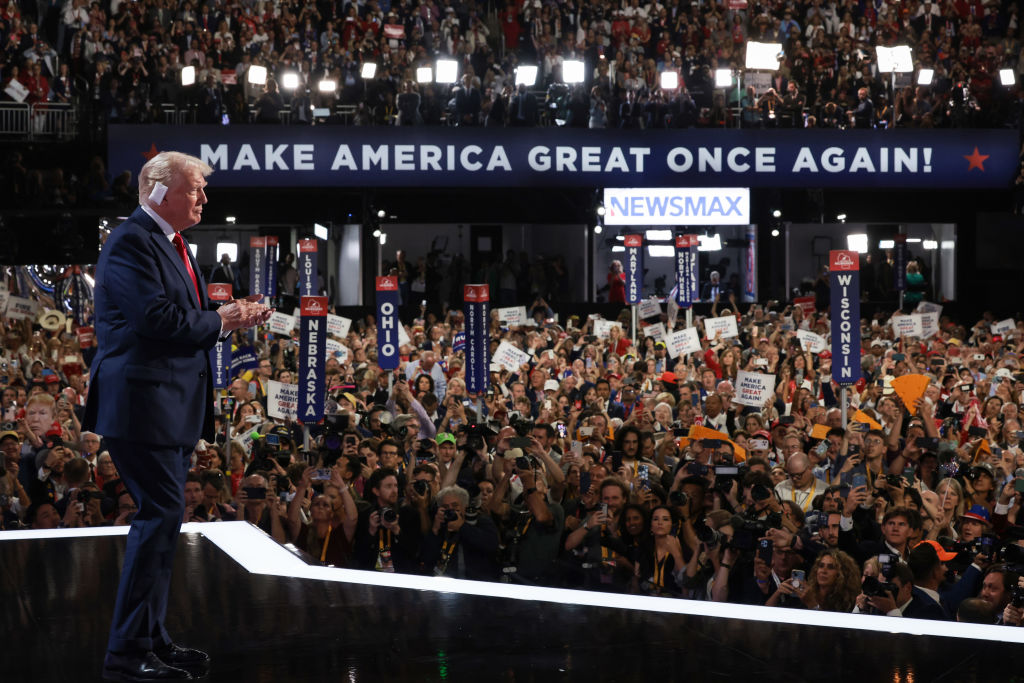

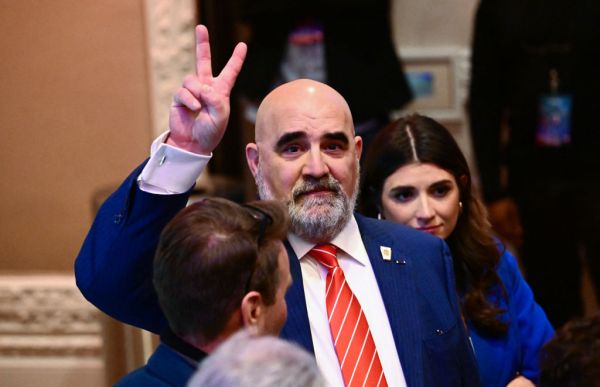
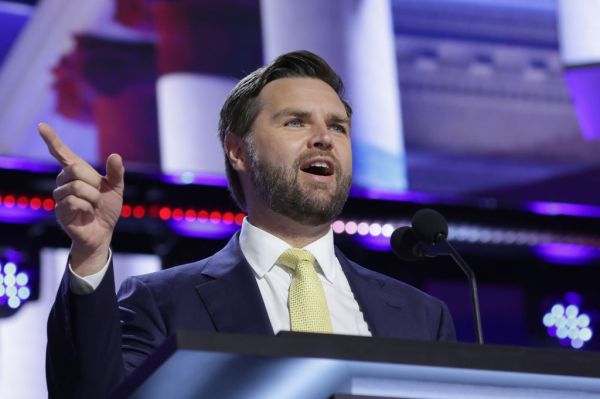
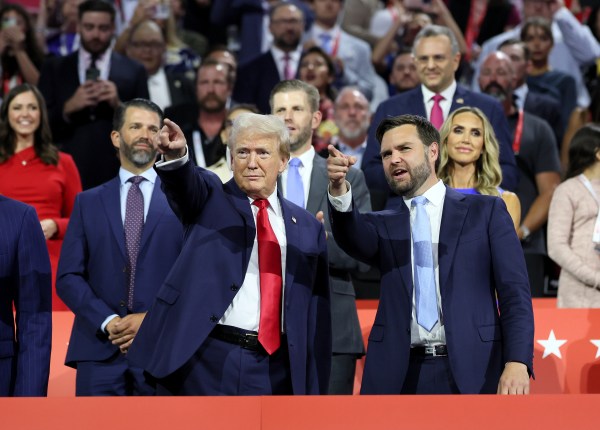
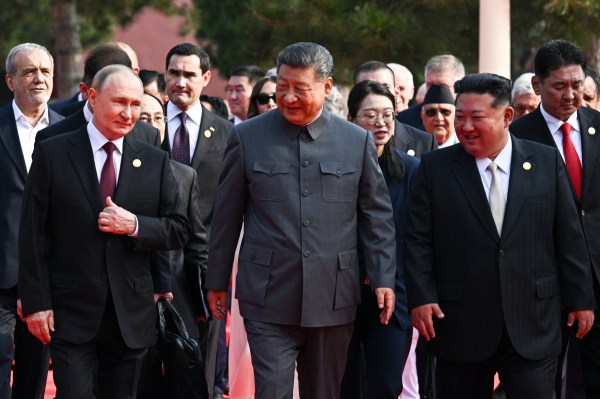
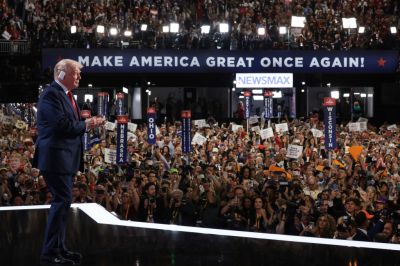
Please note that we at The Dispatch hold ourselves, our work, and our commenters to a higher standard than other places on the internet. We welcome comments that foster genuine debate or discussion—including comments critical of us or our work—but responses that include ad hominem attacks on fellow Dispatch members or are intended to stoke fear and anger may be moderated.
With your membership, you only have the ability to comment on The Morning Dispatch articles. Consider upgrading to join the conversation everywhere.